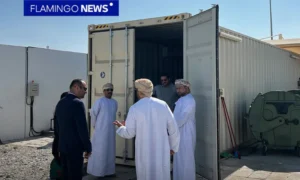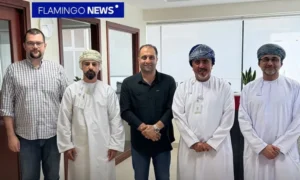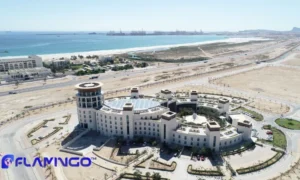Introduction
Oman’s policy of neutrality is one of the defining features of its diplomacy in the Middle East. By avoiding involvement in regional conflicts and military alliances, Oman has consistently focused on active diplomacy and mediation. This approach has not only strengthened the country’s regional position but also provided a safe environment for economic development, attracting investors, and expanding non-oil exports.
History and Philosophy of Oman’s Neutrality
Since the reign of Sultan Qaboos bin Said, neutrality has been a cornerstone of Oman’s foreign policy. With a realistic understanding of regional complexities, Sultan Qaboos chose to keep Oman away from military conflicts and instead build balanced and constructive relationships with all parties. This strategy positioned Oman as a credible mediator in crises such as those involving Iran and the U.S., Syria, Yemen, and Palestine.
Oman’s Active Regional Diplomacy
Oman has played a neutral and mediating role in various regional crises, including the Iran-Iraq War, the Syrian conflict, and tensions in the Gulf. Its balanced relationships with Iran, the Gulf Cooperation Council (GCC), Europe, and the U.S. have earned it the trust of different parties. This active diplomacy is a key component of Oman’s neutral foreign policy.
Economic Policies and Export Growth
Oman’s neutrality extends beyond diplomacy and significantly impacts its economic development. The country’s stable and secure environment has helped attract foreign investment and boost non-oil exports.
Port and Transit Infrastructure
Oman’s major ports—Salalah, Sohar, and Muscat—have become vital regional hubs for the transit of industrial, agricultural, and mineral goods. Equipped with modern infrastructure, these ports facilitate international trade.
Free Trade Policies
Oman has signed multiple bilateral trade agreements and established free trade zones. These efforts have simplified export procedures and created a business-friendly climate for both local and international investors.
Non-Oil Product Exports
Key non-oil exports include dates, copper, gypsum, chemicals, and petrochemical products. Oman continues to expand its target markets across Asia, Africa, and Europe.
Agricultural Development and Organic Products
By adopting modern and sustainable farming methods, Oman has entered global markets with organic products such as dates, tropical fruits, and medicinal herbs—items in high demand worldwide.
Government Support and Strategic Programs
Through its Vision 2040 initiative, Oman aims to reduce oil dependency and diversify its economy by focusing on sectors such as industry, technology, agriculture, and tourism. The government supports local producers with financial incentives, technical training, and export market access.
Air and Ground Transport Infrastructure
- Airports: Oman has expanded its international airports and enhanced the cargo capabilities of Oman Air, facilitating faster global export connections.
- Road Transport: The country’s modern highway network allows for rapid distribution of goods to neighboring countries, streamlining the export process.
Conclusion
By adhering to the principles of rationality and stability, Oman’s neutral foreign policy has strengthened its diplomatic role and laid the foundation for a resilient, export-oriented economy. The policy has positioned Oman as a model of political and economic balance in the Middle East.
If you are considering doing business in one of the most stable countries in the region, Oman’s neutrality and secure environment make it an ideal destination for company formation, investment, and export activities.
Contact us today for a free consultation.






